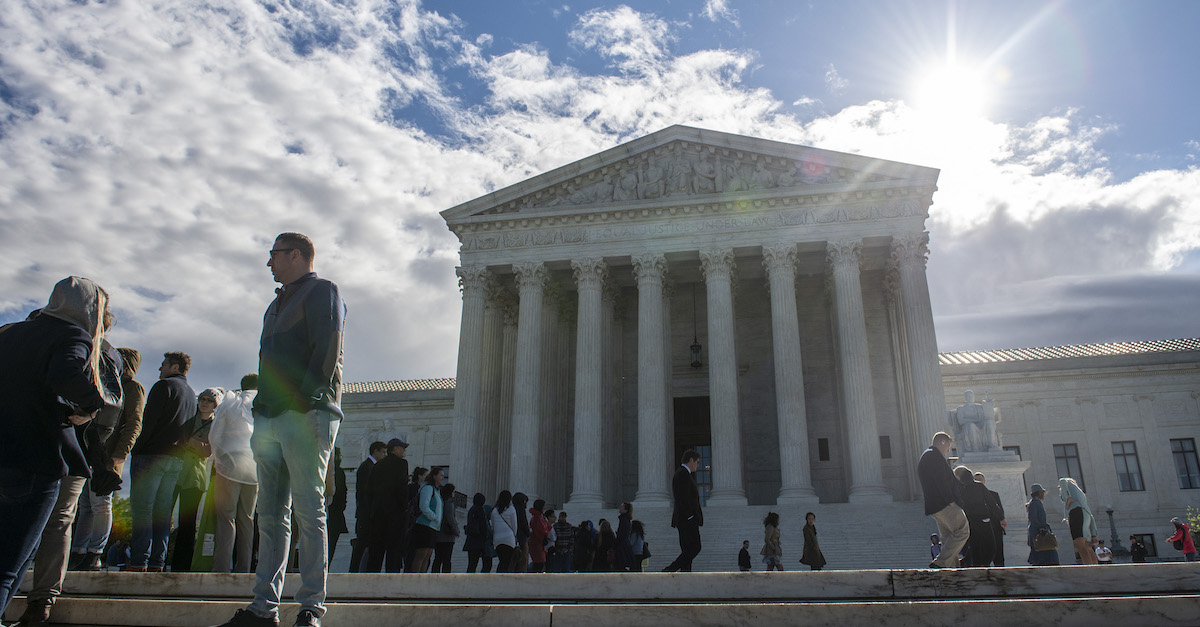
The Supreme Court of the United States granted certiorari Wednesday in two cases involving teachers claiming to have been improperly fired by their respective schools. In both cases, the school’s defense was “employment anti-discrimination laws don’t apply to our teachers, because we’re a religious institution, and teachers are religious leaders.” SCOTUS consolidated the cases, and agreed to hear them in an upcoming term. At the heart of the case lies the scope of religious liberty — and at least to some degree — the importance of teachers.
One case is Morrissey-Berru v. Our Lady of Guadalupe. In 1998, Agnes Morrissey-Berru took a position with Our Lady of Guadalupe Catholic School (OLGS) as a substitute teacher; the next year, she became a full-time sixth-grade teacher. The school required neither that its teachers be practicing Catholics, nor that they undergo any religious training, and Morrissey-Berru was not herself, a practicing Catholic. In the 16 years during which she taught at OLGS, she had no religious training other than one course on the history of the Catholic Church. She taught reading, writing, grammar, vocabulary, science, social studies, and religion, led students in a daily Hail Mary, and accompanied them to Mass. When, after years of employment, OLGS fired Morrissey-Berru, she sued the school for age discrimination.
Likewise, Kristin Biel brought a claim under the Americans with Disabilities Act (ADA) for alleged discrimination against her former employer. St. James Catholic School fired Biel from her fifth-grade teaching position after she disclosed that she had breast cancer and would need to miss work to undergo chemotherapy. Like Morrissey-Berru, Biel’s religious role had been limited to teaching two weekly hours of religion class, participating in twice daily school prayers, and accompanying her students to monthly Mass (where “her sole responsibility was to keep her class quiet and orderly”).
In both cases, the schools argued that the teachers in question cannot rely on the relevant anti-discrimination laws because of the “ministerial exception.” The “ministerial exception” was clarified in a 2012 Supreme Court case which found that churches have the freedom to decide who will hold a position as a religious leader, and their choices cannot be restricted by anti-discrimination laws. Ministers, the Court found, play a central role in spreading the beliefs of religious organizations; requiring those organizations to comply with civil employment law would unconstitutionally infringe upon the free exercise of religion.
Now, the legal issue at hand is how broad, exactly, this “ministerial exception” is.
https://twitter.com/ssamcham/status/1207318278688907265?s=20
Because different religions function differently, the line isn’t entirely clear. Certainly, a woman wouldn’t have a valid gender-discrimination case for being turned down as a Catholic priest, and a blind person wouldn’t have a valid ADA claim if not chosen to be a Muslim Imam. But the line between who is a “minister” and who is not may not be entirely clear. What about principals of parochial schools? Or group leaders in churches that do not use priests? What about soccer coaches, secretaries, or janitors?
Both cases have been appealed by the schools after rulings in favor of the teachers by the Ninth Circuit Court of Appeals. The schools argue that the Ninth Circuit’s rulings – that teachers fall outside the “ministerial exception” — are aberrations, and that religious schools must have the freedom to hire and fire who they wish, even if their choices would otherwise constitute illegal discrimination.
During these cases, SCOTUS will need to examine not only the limitations of religious autonomy, but also the role of teachers generally. Outside of the context of religion, there is little disagreement that teachers are central figures in the lives of their students; does such a role mean teachers in religious schools can be fired for any reason at all, even a discriminatory one? Whether the importance of teachers raises them to the level of “ministers” — and thereby, simultaneously subverts them to the whims of their religious employers — will be an interesting calculus to watch as it unfolds.
[Image via Eric Baradat/AFP/Getty Images]
This is an opinion piece. The views expressed in this article are those of just the author.